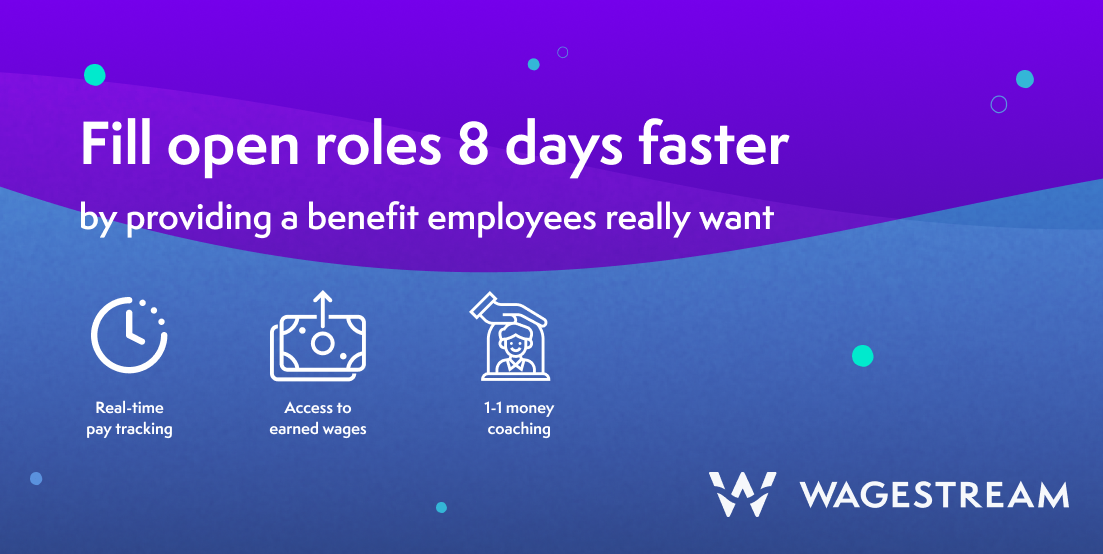

Wagestream was founded in 2018 when CEO Josh Vernon saw one of his friends get into trouble after using a payday loan to buy a fridge. Over the past 3 years Wagestream has grown to become the mission-led responsible experts in financial wellbeing, providing innovative solutions such as earned wage access, pre-pay savings and 1:1 live chat financial coaching to solve the number one concern of hospitality employees - financial stress.
Backed by social impact charities and industry bodies – Financial Inclusion Action Plan (FIAP) Social Tech Trust, Barrow Cadbury Foundation, Joseph Rowntree Foundation, Fair by Design and Big Society Capital – it’s our mission to make money simple not stressful, ensuring everyone has the tools they need to secure their financial futures. We support more than 750,000 employees across the globe at organisations such as Hungry Jack’s, Pizza Hut, Brewdog, Leon and many more.
How QSRs can tackle cost of living crisis

The rising cost of living and inflation are dominating the news at the moment. For the QSR industry, this undoubtedly has an impact on staff with one in four already reporting to AMP that they’re moderately or severely financially stressed.
A study from the Dutch National Institute for Budgeting Advice found that financial stress caused a 20% drop in productivity at work. Since the cost-of-living crisis is spiking financial worry at work, this is likely to be impacting QSR employers across Australia.
It’s part of a wider trend that preoccupation at work reduces productivity and performance. If you’re physically present at work but mentally absent, it’s impossible to fire on all cylinders.
With businesses also under intense pressure having faced their own issues during Covid-19, simply raising wages or providing more financial certainty isn’t always realistic. In fact, 59% of members of The Restaurant and Catering Industry Association recently voted to push back any minimum wage increases from July 2022 to November 2022 or February 2023.
While increasing wages can impact financial wellbeing, there are other ways that businesses can give their employees greater control of their pay to improve their financial positions and develop economic security.
Providing flexibility by unlocking wages
Pay flexibility means the ability to set up a seamless way to grow savings, pay down debt more regularly and absorb a financial shock without having to borrow at high interest rates. It can even be as simple as having real-time wages to track exactly how much has been earned at any point in the pay cycle. Here are tools to help:
Track
Casual workers don’t know how much they’ll be paid until they see the money in their bank account. This makes it hard to budget and make informed spending decisions. With visibility of how much has been earned, employees are able to better plan ahead.
When casual employees know what they’ve earned and how it compares to their previous earnings, they can pick up extra shifts when they see a potential shortfall.
Flexible pay
Seven in 10 workers regularly face financial shortfalls. When these shortfalls occur they’re forced to borrow and pay interest. By accessing their earned, but previously unpaid wages, employees can significantly reduce the amount of interest they pay.
Having this flexibility to align income and expenses means that employees are able to budget in the way that best suits them, rather than working to their employer’s pay cycle. This freedom removes the financial stress that employees face by putting them in control.
Pre-pay savings
Saving is crucial to securing financial wellbeing. But setting money aside is hard and there are many behavioural reasons that explain why. Automating the process and reducing temptation to spend are the building blocks of a solid savings habit.
Pre-pay savings means employees can designate an amount they’d like to save each pay cycle and have that money transferred separately to their regular wages and straight into a savings account. It makes saving second nature.
Is your business ready to focus on financial wellbeing?
There’s never been a more important time for employers to consider how they can support their employees in building secure financial futures. In doing so, they can see proven benefits in terms of talent attraction, productivity and retention.
Find out more about Wagestream’s financial wellbeing programs.
Connect Now
Other Articles

Mad Mex: focusing on wellbeing to boost recruitment

Evolving wellbeing programs: Is it more effective to focus on prevention rather than cure?

Could wellbeing initiatives help you win the war for talent?

How a financial wellbeing program has helped Honest Burgers recruit faster and fill more shifts in the UK

How QSRs can create flexibility for customer-facing workers

The secret sauce for improving financial wellbeing: an interview with Jenny McKie, Chief People Officer at Hungry Jack’s
